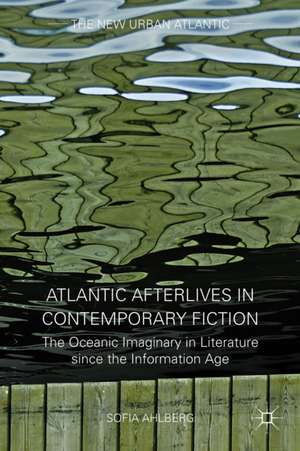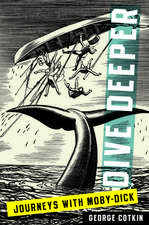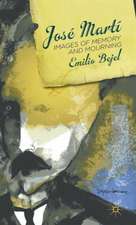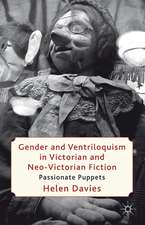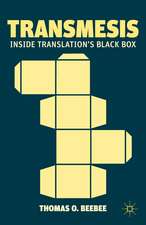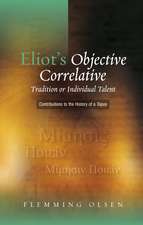Atlantic Afterlives in Contemporary Fiction: The Oceanic Imaginary in Literature since the Information Age: The New Urban Atlantic
Autor S. Ahlbergen Limba Engleză Hardback – 2 mar 2016
Preț: 387.96 lei
Nou
Puncte Express: 582
Preț estimativ în valută:
74.24€ • 80.62$ • 62.37£
74.24€ • 80.62$ • 62.37£
Carte tipărită la comandă
Livrare economică 22 aprilie-06 mai
Preluare comenzi: 021 569.72.76
Specificații
ISBN-13: 9781137479211
ISBN-10: 1137479213
Pagini: 212
Ilustrații: XII, 212 p.
Dimensiuni: 140 x 216 x 14 mm
Greutate: 0.41 kg
Ediția:1st ed. 2016
Editura: Palgrave Macmillan US
Colecția Palgrave Macmillan
Seria The New Urban Atlantic
Locul publicării:New York, United States
ISBN-10: 1137479213
Pagini: 212
Ilustrații: XII, 212 p.
Dimensiuni: 140 x 216 x 14 mm
Greutate: 0.41 kg
Ediția:1st ed. 2016
Editura: Palgrave Macmillan US
Colecția Palgrave Macmillan
Seria The New Urban Atlantic
Locul publicării:New York, United States
Cuprins
Introduction
PART I: LEAKING OCEANS
1. Narrative Without Borders: Reading Graham Greene in the Information Age
2. Apocalypse Then and Now: The Road, Lord of the Flies, and the Ends of Knowledge
PART II: UNSOUND WAVES
3.Through a Border Darkly: North Atlantic Narratives of Exploitation in Peter Hoeg's Miss Smilla's Feeling for Snow and Annie Proulx's The Shipping News
4. A Post-Atlantic Divorce: Reading and Writing Ted Hughes and Sylvia Plath in the Digital Age
PART III: THE COASTLESS SEA
5. Bridging Bereavement: Narratives of Loss and Loss of Narrative in Anne Michaels
6. Future Perfect: The Problem of the Human in Michel Houellebecq's Atomised and Philip Roth's The Human Stain
Conclusion
PART I: LEAKING OCEANS
1. Narrative Without Borders: Reading Graham Greene in the Information Age
2. Apocalypse Then and Now: The Road, Lord of the Flies, and the Ends of Knowledge
PART II: UNSOUND WAVES
3.Through a Border Darkly: North Atlantic Narratives of Exploitation in Peter Hoeg's Miss Smilla's Feeling for Snow and Annie Proulx's The Shipping News
4. A Post-Atlantic Divorce: Reading and Writing Ted Hughes and Sylvia Plath in the Digital Age
PART III: THE COASTLESS SEA
5. Bridging Bereavement: Narratives of Loss and Loss of Narrative in Anne Michaels
6. Future Perfect: The Problem of the Human in Michel Houellebecq's Atomised and Philip Roth's The Human Stain
Conclusion
Recenzii
"Atlantic Afterlives asks a haunting question: how are we to preserve knowledge and narrative from the smooth, cancelling comforts of pure information? The book offers no single answer, but Ahlberg's subtle and imaginative readings of a range of contemporary writers, from Cormac McCarthy to Michel Faber, from Annie Proulx to Michel Houellebecq, provide many new ways of thinking about literature's relation to a changing world." - Michael Wood, Emeritus Professor of English, Princeton University, USA
Notă biografică
Sofia Ahlberg teaches in the Department of Creative Arts and English at La Trobe University, Australia. Her previous publications include articles in journals such as Comparative Literature Studies, Journal of Modern Literature, and Studies in the Humanities.
Textul de pe ultima copertă
Atlantic Afterlives in Contemporary Fiction offers fresh readings of what has been called "transatlantic literature". In selected twentieth- and twenty-first-century texts it discovers a shift from oceanic, place-based knowledge to an atmospheric, placeless circulation of information. Consonant with the displacements of the Information Age, this book reads contemporary narrative as it imagines and navigates today's virtual spaces. An important conclusion of the book is that intellectual resources are finite and should be used sustainably. Thus, arguing against a conventional comparative approach, this book proposes reading practices that resist the tendency toward an oversupply of reworked literary contexts that seems bent on matching the reach of the World Wide Web. Instead, the book reimagines place as a practice in the way it is communicated and narrated. Ultimately, this book empowers the reader to reimagine a future for narrative in the Information Age.
